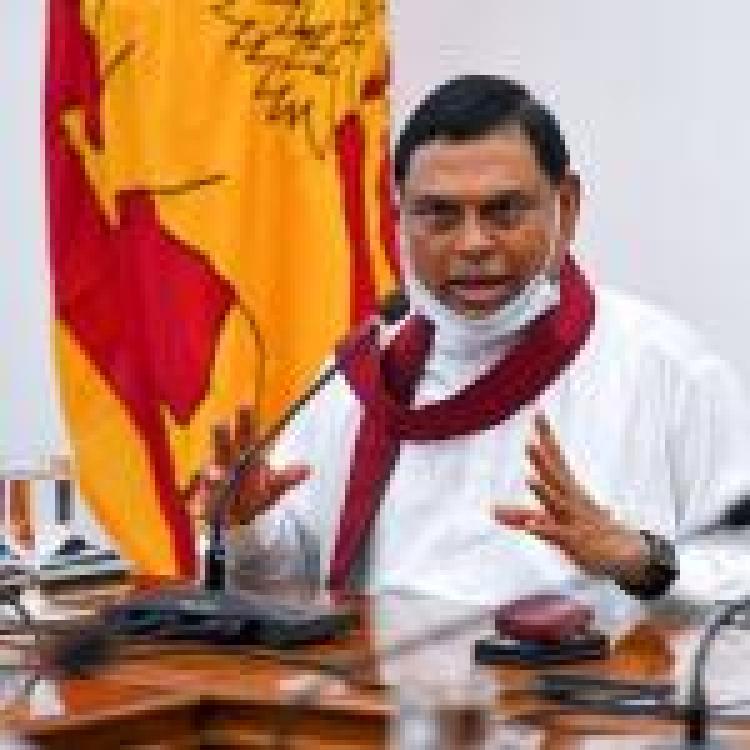![]()
Sri Lanka's finance minister Basil Rajapaksa speaking in parliament, has admitted that the country is not receiving foreign investments as quickly as anticipated, as mass resignations across Sri Lanka's Board of Investments signalled discontent within the regime.
Sri Lanka currently faces a foreign exchange crisis which has been exacerbated by an estimated Rs. 1.6 trillion loss in revenue due to the pandemic and government mismanagement. Loan payments in excess of USD $1.5 billion dollars due next year are at risk of default due to dwindling foreign reserves.
The Sri Lankan government has attempted to open up the country for foreign investments in a variety of industries, looking towards fossil fuel exploration as a means of financing debt. In addition to this in an attempt to fast track, numerous projects the Cabinet-appointed Management Committee on Investments (CAMCI) was set up up to fast track proposals. The formation of a new unit of "specialised personnel" has led to discontent within the Rajapaksa regime, with several senior members of the Board of Investments (BOI) resigning en masse due to the cabinet backed move to recruit private sector professionals with far higher salaries than internal scales.
Directors Harsha Cabraal, Sanjay Kulatunga and Harsha Subasingh resigned, alongside Chairman Sanjaya Mohottala and Director-General Pasan Wanigaskara, following disputes with the BOI unions, which represents roughly 1300 BOI employees. The newly formed unit of 29 recruits had been made an internal government body against the wishes of senior BOI members, leading to discontent amongst staff as pay for the new recuts was substantially higher than internal payscales.
Mr Mohottala speaking to the Sunday Times commented on his intentions during his tenure at the BOI and whether it had been successful.
“We have to go and actively hunt for the investments we need,” he said. “That is investment promotion and putting the country on the map, in my mind. We have done a poor job.”
"If you take the last many years, unfortunately, we can’t point to any substantial investments that we actively pursued and realised,” he added.
The resignation of the senior BOI members was initially rejected by Gotabaya Rajapaksa. However, a new chairman, Raja Edirisuriya was appointed on the 14th by the Sri Lankan president.
'We are in deep trouble'
Certain investments within Sri Lanka have caused outrage across the Sinhala south. Sinhala politicians, trade unions, civil society organisations and religious leaders all banded together to express their outrage at the Sri Lankan government’s signing of a deal with US-based firm New Fortress Energy, which will see the company acquire a 40% stake of the Yugadanavi Power Plant based in Colombo and develop a new offshore liquefied natural gas (LMG) terminal off the coast of the southern capital.
Buddhist monk and chairman of the National Movement for the Protection of the Nation, Elle Gunawansa meanwhile has filed a Fundamental Rights petition in Sri Lanka’s Supreme Court, as well as the Colombo Archbishop Malcolm Cardinal Ranjith, claiming that the deal is “contrary to the law, arbitrary and an infringement of Fundamental Rights”.
Meanwhile, Opposition Leader Sajith Premadasa released a statement warning that awarding the contract to a “foreign private company” would jeopardise “national security”.
“Energy security in the country will be jeopardised by transferring a controlling power of a central power plant in the country, and this also endangers power generation in the country by letting a foreign company weaken LNG supply in the future,” he claimed. “No country in the world has called the tenders for supplying natural gas and for related infrastructure development jointly, because those countries are aware that such a move would not ensure national security and energy safety in the country.”
“A foreign private company will have the monopoly in generating 50% of the power requirements in the country in terms of this proposal. We urge the Government to explain reasons for offering this to a private company, even after calling tenders and the completion of evaluations, and the consequences of possible diplomatic issues likely to arise from other countries who had already forwarded tenders accordingly.”
His statement was accompanied by his Samagi Jana Balawegaya (SJB) part also filing fundamental rights petition in Sri Lanka’s supreme court.
Janatha Vimukthi Peramuna (JVP) Leader and National People’s Power (NPP) Parliamentarian Anura Kumara Dissanayake claimed that the deal was signed in secrecy in the “dead of the night”, leading to the lawmaker to accuse the government of being “owls”.
“An agreement of national importance was signed at 12:06 past midnight. After that the foreigner who came for the signing went back to America on a flight at 2.00 a.m.,” he claimed.
Read more here: 'We are in deep trouble' - Outrage across Sinhala south after US firm wins massive energy contract
'You have failed the Tamils even on the question of development'
Across the Tamil homeland, investment since the end of the armed conflict has been stifled due to the rampant militarisation and indifference of the ruling party. Last year TNPF MP Gajendrakumar Ponnambalam, highlighted that the Rajpakasa's governments promise of development to 'solve all problems' had failed. Gajendrakumar highlighted the government's inaction to protect the 'vulnerable people who have faced a war situation for 32 years'.
Ponnambalam emphasised the height of livelihood restrictions seen in the Tamil homeland preventing activities such as fishing and agriculture, ‘‘approximately 30 percent of the Jaffna district was under military control under the name of High-Security Zone". "Vast tracks of land were no-go zones," he added. "Most of the agricultural lands in the North East were occupied as unauthorised areas for the people. That was the state that the Tamil people had to face for over 32 years.’’
The Tamil political leader went on to highlight the failure of the Rajapaksa government to develop the livelihoods of Tamils in the North-East. "It is the left’s cornerstone principle that vulnerable people must be protected, that vulnerable economies must be protected and built. The Prime Minister who is a leftist at heart should have made sure that vulnerable people who have faced a war situation for 32 years and their economy should have been protected but that has not been done. You have failed even on the question of development.’’
Read more here:‘You have failed the Tamils even on the question of development’ – Gajendrakumar Ponnambalam
Read more at Economynext and Sunday Times




